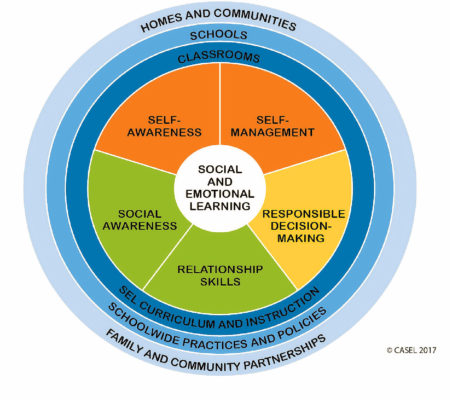To meet academic goals and successfully succeed in school, students must be healthy and strong, both physically and mentally. Specialized instructional support personnel (SISP) assist in identifying children with physical, mental, and behavioral healthcare needs, provide direct services to children and families, and serve as the conduit to community resources.
Specialized instructional support personnel (SISP) assist in identifying children with physical, mental, and behavioral healthcare needs, provide direct services to children and families, and serve as the conduit to community resources.
 As states, school districts and education leaders continue to examine the needs of children to determine how they can improve academic success, evidence-based research shows an inextricable link between children's physical, emotional, and mental health and their academic outcomes.
As states, school districts and education leaders continue to examine the needs of children to determine how they can improve academic success, evidence-based research shows an inextricable link between children's physical, emotional, and mental health and their academic outcomes.
Schools are increasingly looked upon as an institution that can play a critical role in helping children acquire the knowledge and skills necessary to make healthy choices and improve the health status of our nation’s youth. NASISP members work on a wide range of issues related to these domains, in research, professional practice, and advocacy, around the needs of the Whole School, Whole Child, and Whole Community.
NASISP members work on a wide range of issues related to these domains, in research, professional practice, and advocacy including the following:
Mental Health
- School-wide, trauma-informed approaches to school safety and violence prevention
- Positive behavioral interventions and supports, restorative practices, and other programs that promote supportive discipline
- Advocacy for school-based mental health services and multi-tiered systems of support
- Anti-bullying measures and policies that support anti-bias and non-discrimination
- Suicide prevention and intervention efforts
- Implement evidence-based crisis prevention, intervention, and postvention services
Physical Health
- Early childhood development (both physical and neurological)
- Public health and disease prevention education and services
- Student health screenings, including speech, language, and hearing screenings
- Immunizations and health checks
- Support for healthy physical school environments and nutrition options
- Care for students with chronic health conditions (including prevention of childhood obesity)
- Fine and gross motor transition and mobility services, including occupational therapy and physical therapy
Social, Emotional, and Academic Development (SEAD)
 Prioritizing student well-being to create optimal and sustainable conditions for learning and an environment to help students build resilience and success across the lifespan.
Prioritizing student well-being to create optimal and sustainable conditions for learning and an environment to help students build resilience and success across the lifespan.- Develop Core Competencies of Social-Emotional Learning (SEL), including self-awareness, self-regulation and self-monitoring, social awareness, empathy and perspective taking, relationship-building, and responsible decision-making.
- Provide social skills training and opportunities for classroom and school-wide practice, improving school climate and improving behaviors across school settings.
- Support school leaders and staff in implementing school-wide SEL and student wellbeing in an integrated framework across PK-12 education.
- Reinforcing SEL skills within an instructional setting and a social school environment is of particular benefit for students with disabilities and students at risk of mental and behavioral health disorders, maintaining a supportive culture and providing a skill set that lets them focus, understand, and respond to learning opportunities in the classroom and beyond.
See School Climate and Safety.

